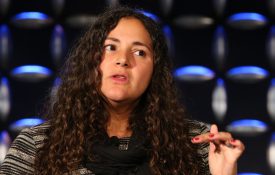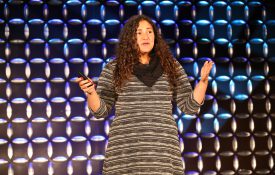-
Unlike Humans, Bonobos Shun Helpers And Befriend The Bullies
Even very young babies can tell the difference between someone who’s helpful and someone who’s mean — and lab studies show that babies consistently prefer the helpers. But one of humans’ closest relatives — the Visit Page
-

New Research From Psychological Science
A sample of new research exploring implicit statistical learning and real-world decision making, sources of mimicry in social interactions, reward adaptation and learning in rats, and the effects of lingering cognitive states on memory. Visit Page
-
Why Do Humans Talk to Animals If They Can’t Understand?
The Atlantic: “Do you think it’s weird that I tell Nermal I love her multiple times a day?” My sister’s question was muffled, her face stuffed in the fur of her six-month-old kitten (named for Visit Page
-

The Cognitive ‘Glitch’ of Humans: Laurie Santos on What Makes the Human Mind So Special
Laurie R. Santos describes evidence of cognitive talents shared across species, and those that seem to be exclusive to humans. Visit Page
-

Laurie Santos on What Makes the Human Mind So Special
Psychological scientist Laurie R. Santos of Yale University says that her cognitive experiments with monkeys and dogs suggests that humans’ unique ability to understand others’ mental states can, in many cases, actually cause us to confuse that thinking with our own. See her complete presentation at the 29th APS Annual Convention in Boston. Visit Page
-

Humans Are Animals, Too: A Whirlwind Tour of Cognitive Biology
Citing the bridge between evolutionary psychology and cognitive science, University of Vienna scientist W. Tecumseh Fitch shows how studying our animal relatives fosters our understanding of human cognition. Visit Page

